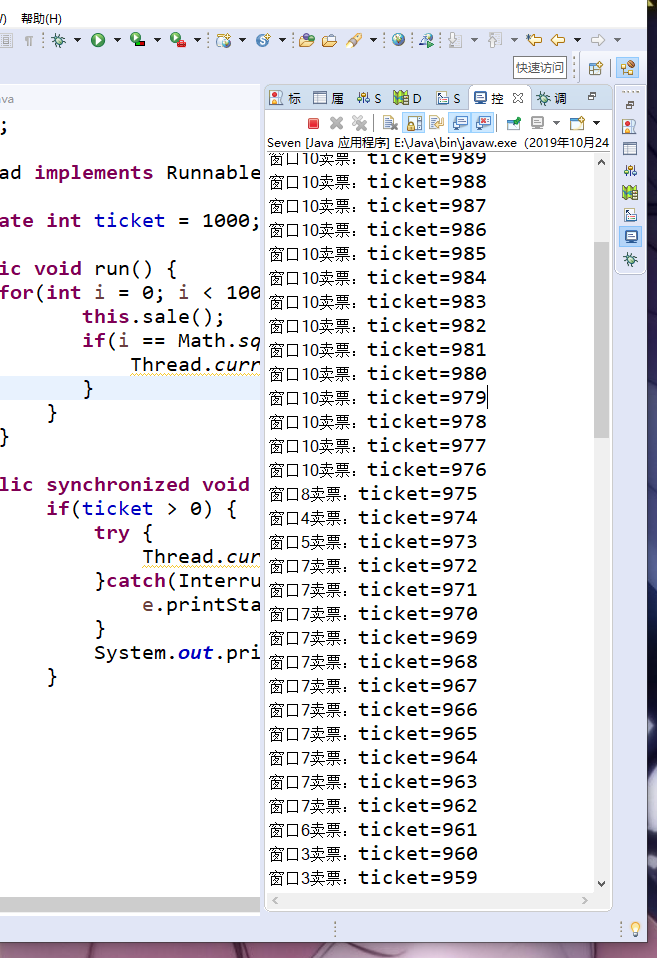实验任务详情:
完成火车站售票程序的模拟。
要求:
(1)总票数1000张;
(2)10个窗口同时开始卖票;
(3)卖票过程延时1秒钟;
(4)不能出现一票多卖或卖出负数号票的情况。
1、实验代码
package test;
class MyThread implements Runnable{
private int ticket = 1000;
public void run() {
for(int i = 0; i < 1000; i++) {
this.sale();
if(i == Math.sqrt(i) * Math.sqrt(i)) {
Thread.currentThread().yield();
}
}
}
public synchronized void sale() {
if(ticket > 0) {
try {
Thread.currentThread().sleep(1000);
}catch(InterruptedException e) {
e.printStackTrace();
}
System.out.println(Thread.currentThread().getName()+"卖票:ticket="+ticket--);
}
}
}
package test;
public class Seven {
public static void main (String args[]) {
MyThread my = new MyThread();
for(int i = 1; i <= 10; i++) {
new Thread(my,"窗口"+i).start();
}
}
}


学习总结
线程操作的一些主要方法
*public Thread(Runnable target) :接收Runnable 接口子类对象,实例化Thread对象。
*public Thread(Runnable target, Stirng name) :接收Runnable 接口子类对象,实例化Thread对象,并设置线程名称。
*public Thread (String name):实例化Thread对象,并且设置线程名称
*public static Thread currentThread():返回目前正在执行的线程
*public void start():开始执行线程
线程的休眠:直接使用Thread.sleep()进行休眠
线程的优先级:
public static final int MIN_PRIORITY :最低优先级
public static final int NORM_PRIORITY:中等优先级
public static final int MAX_PRIORITY:最高优先级
同步:多个操作在同一个时间段内只能有一个线程进行,其他线程要等待此线程完成后才可以继续执行
同步代码块:
synchronized(同步对象){
需要同步的代码;
}
同步方法:
synchronized 方法返回值 方法名称 (参数列表){
//方法体
}